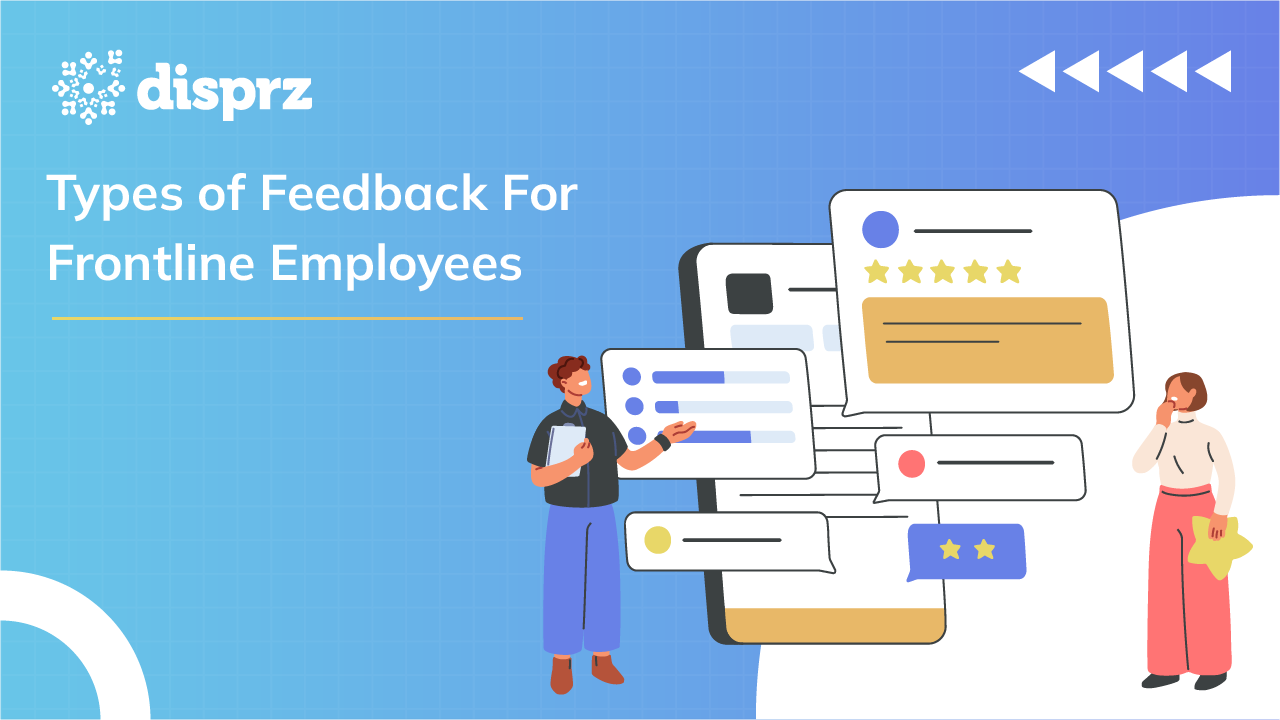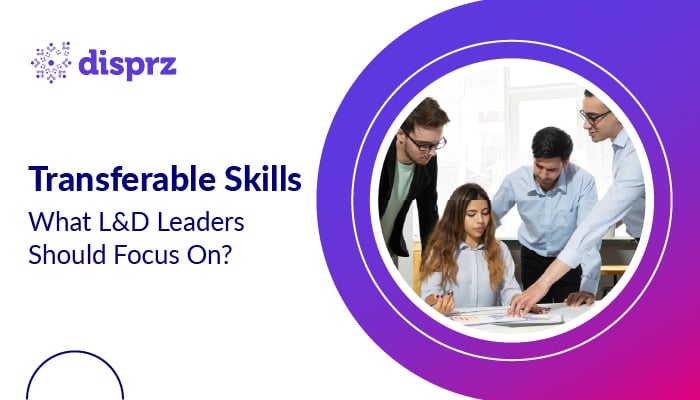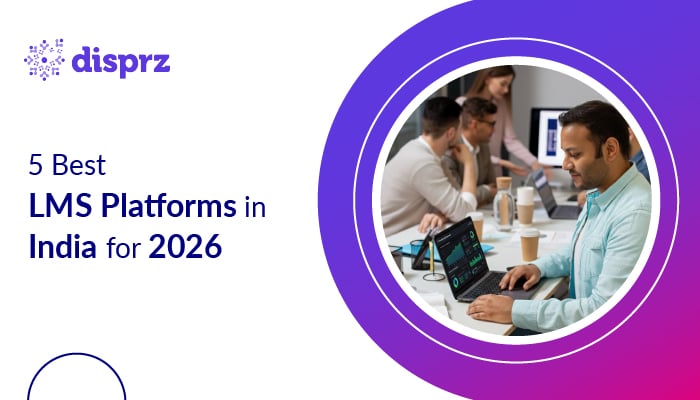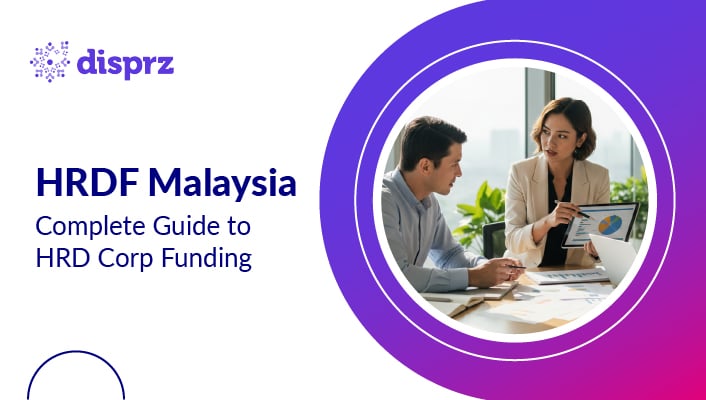Welcome to the frontline, where every interaction matters and every employee plays a pivotal role in shaping the success of the organization. In the fast-paced world of frontline operations, the effectiveness of the workforce is not just important; it's absolutely crucial. Frontline employees are the beating heart of the company, serving as the first point of contact for customers and wielding immense influence over key business outcomes.
Imagine this
A customer walks into your store or reaches out to your support team. Who do they encounter first? Your frontline employees. These frontline warriors are the face of your company, embodying your brand values and delivering exceptional service with every interaction. Whether it's providing product recommendations, resolving customer issues, or going the extra mile to ensure frontline satisfaction, frontline employees are instrumental in shaping the customer experience and driving customer loyalty.
To ensure continuous improvement and foster a thriving workplace culture, it's crucial for frontline organizations to actively collect and act upon employee feedback.
Explore the essential types of employee feedback that are vital for frontline organizations to prioritize.
Why is Employee Feedback Important?
Cultivating a feedback culture enhances employee experiences, improving interactions and conversations.
Organizations that provide improved employee experiences include:
-
Employee engagement enhances performance and team spirit. A study by Warwick University discovered that happier employees are approximately 12% more productive. Disengaged personnel, on the other hand, perform 10% less productively.
-
A strong corporate culture that attracts new employees based on shared values and job satisfaction might result in up to 400% revenue increase. Furthermore, 86% of job seekers will avoid applying to companies with a negative reputation and poisonous culture.
-
According to one study, organizations that use regular employee feedback to promote employee engagement have a 9 % lower turnover rate, indicating the significant impact of fostering an environment of continuous feedback and engagement on retaining staff.
A great employee experience begins with the onboarding of a new employee and ends with their departure, with numerous experiences based on an employee's physical, mental, financial, and spiritual health and well-being.
Six Essential Types of Employee Feedback
Here are six essential types of employee feedback that every frontline organization should prioritize
1) Performance Feedback
Performance feedback gives frontline employees insights into their work's effectiveness, highlighting achievements and areas for improvement. It's essential for personal growth and aligning efforts with organizational goals.
Benefits
-
Enhances individual accountability and motivation.
-
Identifies training needs and career development opportunities.
Impact on the Organization
-
Boosts overall productivity and quality of work.
-
Strengthens alignment between employee objectives and business outcomes.
2) Customer Feedback
Frontline employees are the face of the company and have direct interactions with customers on a daily basis. This feedback is essential for frontline organizations as it provides valuable insights into the customer experience and helps identify areas for improvement. Ultimately, customer feedback collection empowers frontline employees to be advocates for the customer, driving higher levels of customer satisfaction, loyalty, and retention.
Benefits
-
Identifies customer preferences, satisfaction levels, and pain points.
-
Provides real-time feedback on emerging trends, competitor insights, and customer sentiments.
Impact on the Organization
-
Helps gain a deeper understanding of the customer journey for tailoring products and services to meet customer needs.
-
Stays agile and responsive in a rapidly changing marketplace.
3) Operational Feedback
Frontline employees are the ones directly involved in executing operational tasks and interacting with systems and procedures daily. As a result, they possess unique insights into the effectiveness and practicality of operational workflows. This feedback-driven approach not only fosters a culture of continuous improvement but also empowers frontline employees to actively contribute to the optimization of operational processes.
Benefits
-
Identifies bottlenecks, inefficiencies, and opportunities for process improvement.
-
Fosters a culture of continuous improvement.
Impact on the Organization
-
Improves areas where processes can be streamlined, resources reallocated, or technology implemented to enhance efficiency and effectiveness.
-
Increases productivity, reduces costs, and improves overall organizational performance.
4) Team Feedback
Frontline employees often work closely together to deliver exceptional service and achieve common goals. This feedback helps foster a culture of openness and transparency, where team members feel valued and empowered to share their thoughts and ideas. Additionally, team feedback collection promotes accountability, and team members can hold each other accountable for their actions and behaviors.
Benefits
-
Promotes collaboration, communication, and a sense of belonging within the team.
-
Identifies strengths, areas for improvement, and opportunities for team development.
Impact on the Organization
-
Strengthens team dynamics and improves performance.
-
Enhances overall morale, leading to increased productivity and customer satisfaction.
5) Training and Development Feedback
Frontline employees require specialized skills and knowledge to excel in their roles, and effective training is essential for their success. Collecting feedback on training and development is vital for frontline organizations as it ensures that training programs are tailored to meet the specific needs and preferences of the workforce.
Benefits
-
Assesses the effectiveness of training materials, delivery methods, and overall learning experiences.
-
Identifies areas for improvement, addresses any gaps in training content, and adapts training programs to better align with the evolving needs of the workforce.
Impact on the Organization
-
Empower frontline employees to take ownership of their learning journey.
-
Increases job satisfaction and engagement, which ultimately leads to higher organizational performance.
6) Leadership Feedback
Frontline managers play a crucial role in guiding and motivating frontline teams, and their leadership style directly impacts employee engagement and performance. This feedback provides valuable insights into leadership effectiveness, communication, and managerial support. Ultimately, leadership feedback collection empowers frontline employees to actively contribute to the development and improvement of leadership practices, leading to higher levels of employee satisfaction, morale, and overall organizational success.
Benefits
-
Assesses managerial effectiveness and identifies areas for improvement.
-
Addresses any concerns or challenges that may be hindering team success.
Impact on the Organization
- Strengthens leadership skills and enhances managerial effectiveness.
- Fosters a culture of trust, transparency, and accountability within the organization.
Collecting frontline employees' feedback is instrumental in enabling frontline organizations achieve business success. By soliciting insights directly from frontline staff, organizations can gain valuable perspectives on customer preferences, operational efficiencies, and team dynamics. This feedback enables organizations to make informed decisions, optimize processes, and enhance the overall customer experience, ultimately driving increased productivity, customer satisfaction, and business growth.
How to Give Employee Feedback?
To optimize the employee experience, fostering a culture of actionable feedback within your organization is imperative. Effective feedback comprises several key qualities that enhance communication and promote growth.
There are 10 qualities of effective feedback. At its best, effective, honest feedback is always
-
Sincere: Genuine expression without clichés.
-
Clear: Direct and focused on the topic.
-
Timely: Given promptly and relevant to the situation.
-
Safe: Avoids aggression and personal attacks.
-
Grounded: Based solely on observable facts and behaviors.
-
Two-way: Allows for dialogue and mutual agreement.
-
Important: Identifies significant goals rather than minor issues.
-
Solution-focused: Oriented towards resolving problems.
-
Supported: Offers assistance and resources for improvement.
-
Ongoing: Part of a continuous feedback loop rather than a one-time event.
Case Study
Discover how Disprz helped the world's largest E-commerce organization achieve frontline operational excellence.
Challenge
The world’s largest e-commerce player faced a critical need to expand its learning initiatives and boost the preparedness of its extensive frontline team of delivery associates.
Drawback
Unfortunately, their current learning technology proved inadequate in delivering quick, top-notch learning experiences, stifling their quest for ongoing enhancement.
Mission
The task at hand? Crafting a versatile, scalable, and nimble learning platform that perfectly aligned with their ambitious business objectives.
Solution
Disprz revolutionized the game with its cutting-edge, mobile-first platform – a scalable, automated, and flexible solution that unleashed a torrent of productivity, supercharged efficiency, and slashed costs. With Disprz's innovative Frontline Enablement (FLE) platform, delivery associates were empowered with seamless onboarding and ongoing learning, seamlessly integrated into their daily workflow. Plus, rigorous metrics tracking ensured that every learning initiative packed a punch.
Figure 1: Optimize onboarding with detailed metrics
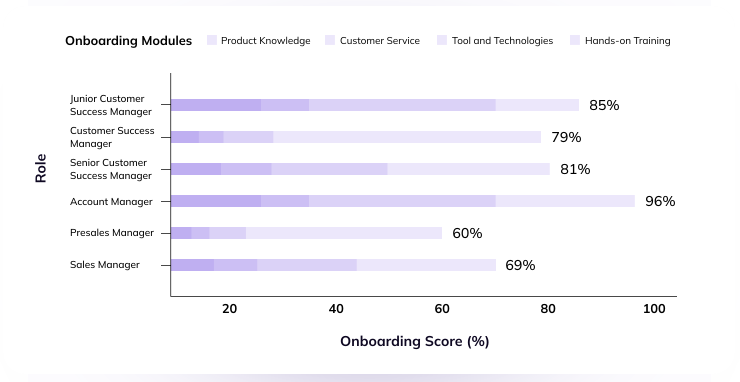
Source: Disprz
Result
Disprz's FLE Platform seamlessly integrated learning into the daily workflow, achieving an impressive 98% content completion rate among users. By delivering targeted knowledge aligned with Key Performance Indicators (KPIs) on a daily basis, frontline employees felt more confident and prepared, resulting in a remarkable 3% increase in their KPI scores. Through streamlined onboarding processes and on-demand access to relevant content, Disprz facilitated significant operational efficiency improvements, saving the client millions of dollars.
Conclusion
In today’s dynamic world of frontline operations, the role of frontline employees cannot be overstated. They are the unsung heroes who work tirelessly to uphold the reputation of the company, exceed customer expectations, and drive key business outcomes.
Therefore, collecting frontline employees’ feedback is essential for organizations looking to drive continuous improvement, enhance customer satisfaction, and foster a positive work culture. By prioritizing these six types of feedback, organizations can empower their frontline employees, optimize operations, and achieve long-term success.
Remember, feedback is not just about gathering information, it's about taking action to address concerns, capitalize on strengths, and drive meaningful change. By listening to and acting upon employee feedback, frontline organizations can create a workplace where employees feel valued, engaged, and empowered to excel.
If you’re looking for expert guidance on how to collect frontline feedback to drive organizational growth, talk to an expert today.



